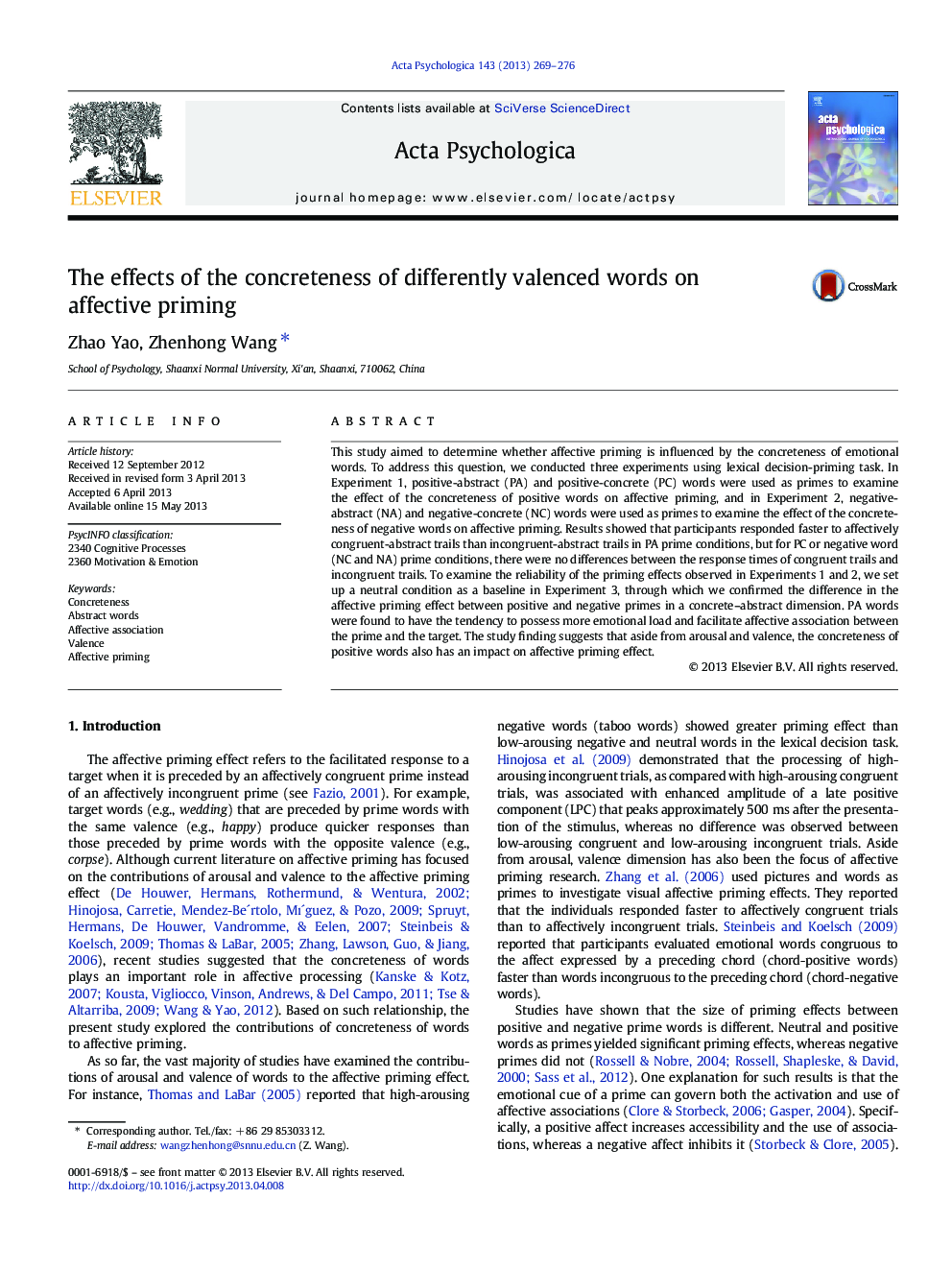| Article ID | Journal | Published Year | Pages | File Type |
|---|---|---|---|---|
| 919802 | Acta Psychologica | 2013 | 8 Pages |
•This study investigated the contributions of concreteness to affective priming.•A significant priming effect found in positive-abstract primes.•Emotion words should be treated separately as abstract or concrete words.•Positive abstract words have more affective information than positive concrete words.
This study aimed to determine whether affective priming is influenced by the concreteness of emotional words. To address this question, we conducted three experiments using lexical decision-priming task. In Experiment 1, positive-abstract (PA) and positive-concrete (PC) words were used as primes to examine the effect of the concreteness of positive words on affective priming, and in Experiment 2, negative-abstract (NA) and negative-concrete (NC) words were used as primes to examine the effect of the concreteness of negative words on affective priming. Results showed that participants responded faster to affectively congruent-abstract trails than incongruent-abstract trails in PA prime conditions, but for PC or negative word (NC and NA) prime conditions, there were no differences between the response times of congruent trails and incongruent trails. To examine the reliability of the priming effects observed in Experiments 1 and 2, we set up a neutral condition as a baseline in Experiment 3, through which we confirmed the difference in the affective priming effect between positive and negative primes in a concrete–abstract dimension. PA words were found to have the tendency to possess more emotional load and facilitate affective association between the prime and the target. The study finding suggests that aside from arousal and valence, the concreteness of positive words also has an impact on affective priming effect.
